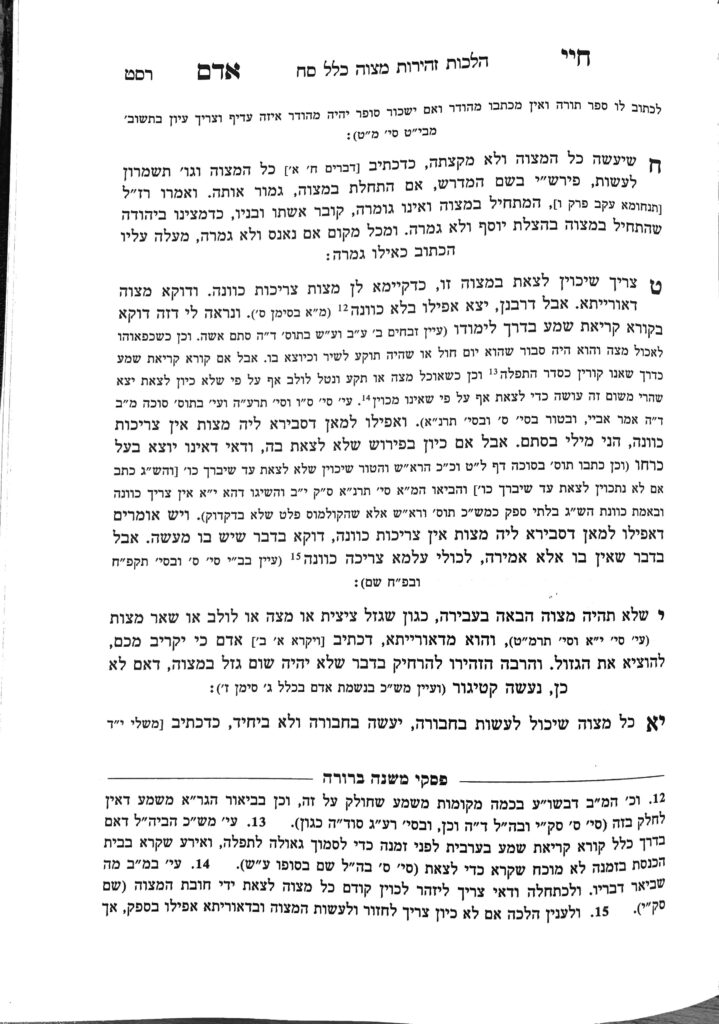We are continuing in siman 9, which discusses the concept of mitzvos tzrichos kavana. Before we see the language of the Chayei Adam, we have one more point to clarify.
Let us consider a mashal of a person who enters the army. Part of the training in the army will be to shoot a gun with accuracy, precision and under pressure, among other things. He is also trained to shoot on command, so that in the heat of battle, if the commanding officer directs him to shoot, he will be able to do so without hesitation. Thus, shooting can become an automatic reflex, so that at moments when there is no time to think, he can react immediately.
If a person enjoys the training, but only does the training out of his own personal enjoyment in shooting, they will not be able to react instinctively to their commander’s orders. On the other hand, if the soldier has no interest in shooting, but only does so due to the commander’s orders, they end up becoming an extension of the commander. The soldier’s arm and hand become an extension of the commanding officer, so to say.
We can apply this mashal to mitzvos. When we do a mitzvah because of our own personal motivations, to a certain extent, it is not Hashem’s command being expressed but rather our own interests. When we do a mitzvah because Hashem commanded it, besides for the action which has been done, there is an expression of Hashem’s command being fulfilled through us. We become an extension of Hashem, so to say. We become a vehicle through which to express Hashem in the world. When doing a mitzvah for the sake of a mitzvah, we become a shliach of Hashem for that action to take place, and we become one with Hashem. So a mitzvah serves as a vehicle through which we connect to our creator. We then become the physical expression of the ratzon Hashem, in the same way that the soldier becomes an expression of the command of the officer.
The Chayei Adam writes that a person has to have intent to fulfill the mitzvah they are performing, because we pasken mitzvos tzrichos kavana. It does not mean that a person must have fancy kabbalistic thoughts, but a basic thought process that they are doing the action lesheim mitzvah, for the sake of the mitzvah. The Chayei Adam paskens a person must have this kavana, and it is me’akeiv, determinative, in whether they will fulfill the mitzvah.
The Chayei Adam points out that the Magen Avraham clarifies that kavana is me’akeiv regarding a mitzvah deoraysa, and one would need to repeat the mitzvah if they did not have kavana. However, if one did not have kavana for a mitzvah derabanan, they fulfill the mitzvah and do not need to repeat it. We will discuss this idea further, be’ezras Hashem.
Summary
When we fulfill a mitzvah for the sake of the mitzvah, we become a shliach of Hashem in this world, and the mitzvah becomes a vehicle through which we connect to Hashem.
For a mitzvah deoraysa, if one does not have kavana they need to repeat the mitzvah.
For a mitzvah derabanan, if one does not have kavana they have fulfilled the mitzvah and do not repeat it.



